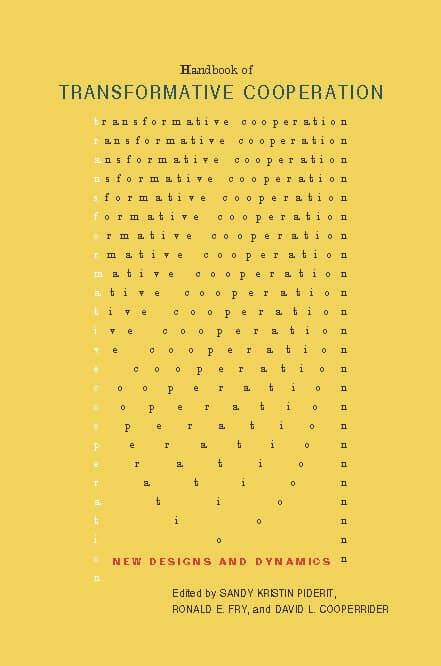Handbook of Transformative Cooperation

Transformative Cooperation (TC) presents new ways for individuals and organizations to partner to create a more sustainable future and take people to a higher stage of moral development. This handbook invites readers to consider how businesses can partner with organizations in other sectors of society, including governments and nonprofits, to address global concerns and improve the lives of all. It documents the need for and early examples of cooperative efforts that have transformed the relationships between corporations and the communities in which their employees live and work.
The editors begin by issuing a call for TC, explaining the economic and social reasons for working across traditional organization, national, and international boundaries. The book then goes on to explain the dynamics of transformative cooperation, exploring the leadership characteristics that facilitate the transformation and its social benefits. Throughout this handbook, the editors present some of the best designs in transformative cooperation, and conclude by explaining transformative cooperation as a generative possibility. Overall, the editors and contributors argue that TC is about the search for the best in people, their organizations, and the world around them.
"The Handbook of Transformative Cooperation integrates perspectives on cooperative change from many theoretical and practical aspects. The editors reject the notion of exclusive top-down change and systematically consider a holistic approach to change in organizations. Those interested in organizational change from an individual, group, leadership, firm level and global perspective will enjoy this contribution."—James Avey, Central Washington University
"When I consider books based on academic conferences, like this one, I sometimes wonder if they are efforts to promote the more worthy papers from among a relatively small sample Yet I can most assuredly say, this book overcame my skepticism and replaced it with compelling arguments, grounds for further reflection, and clear avenues for reaching the editors' laudable objectives the book is one of the most important and useful books that I have read in a long time." —Mark Mone, Sheldon B. Lubar School of Business, University of Wisconsin-Milwaukee




